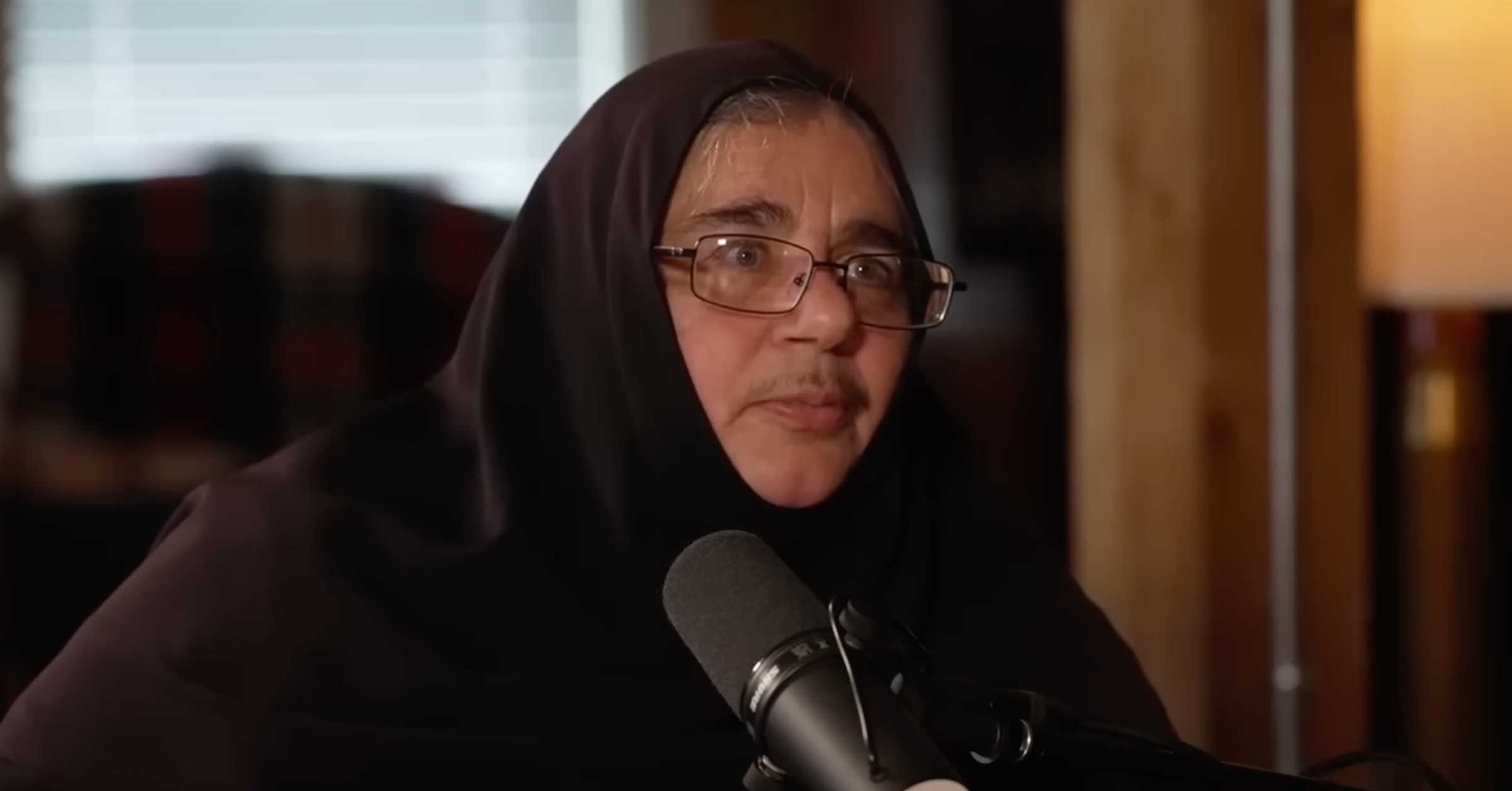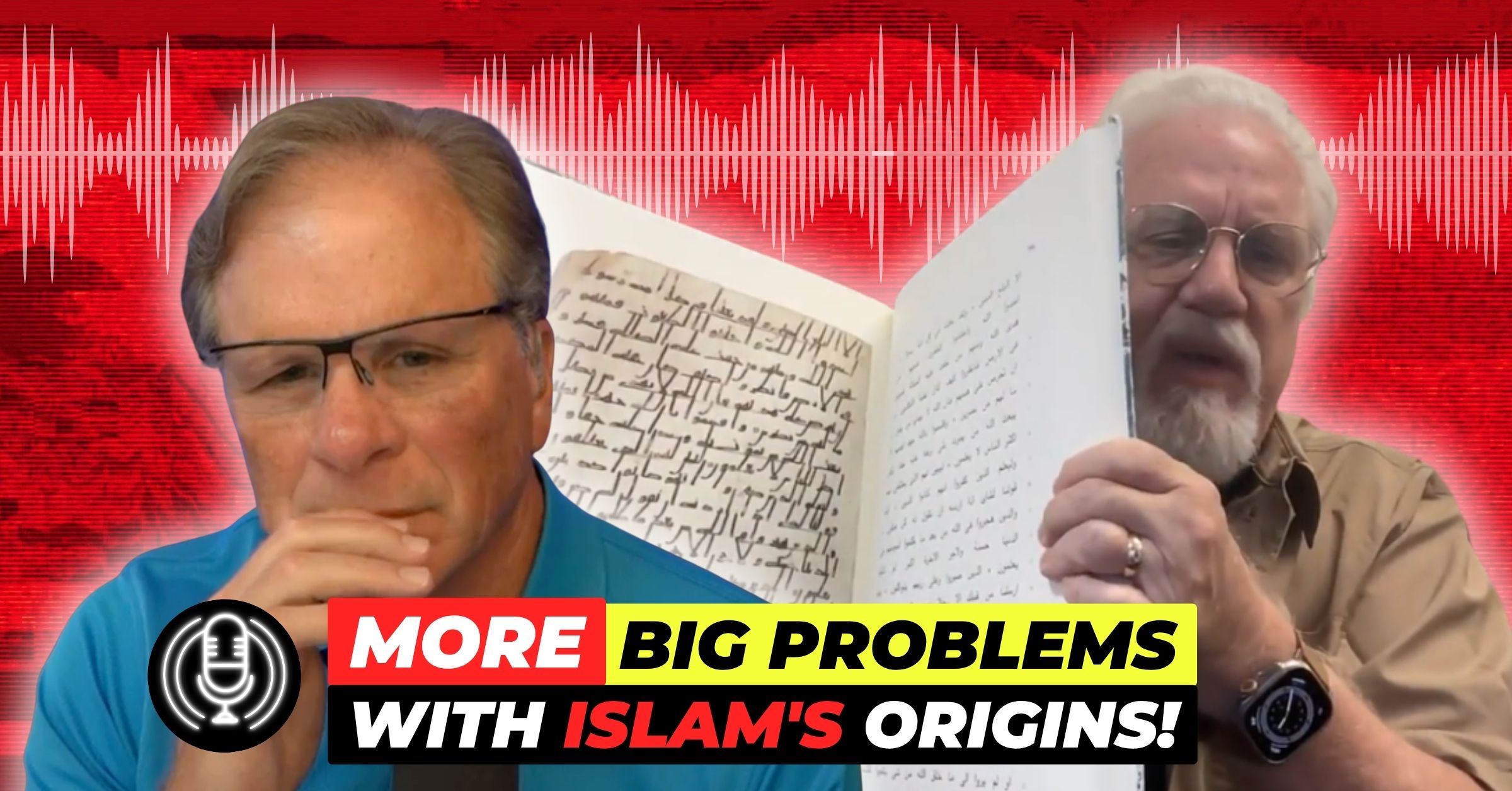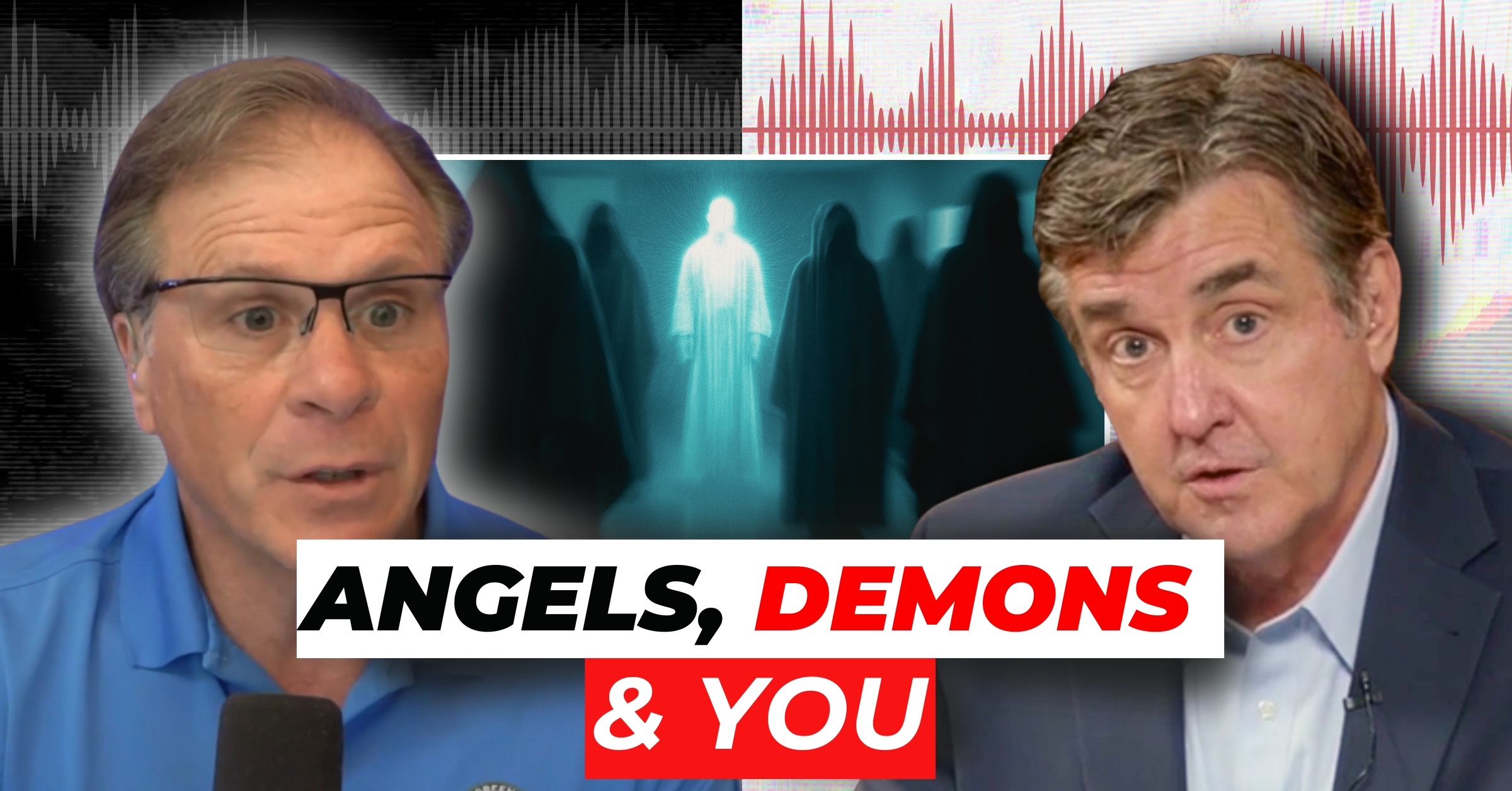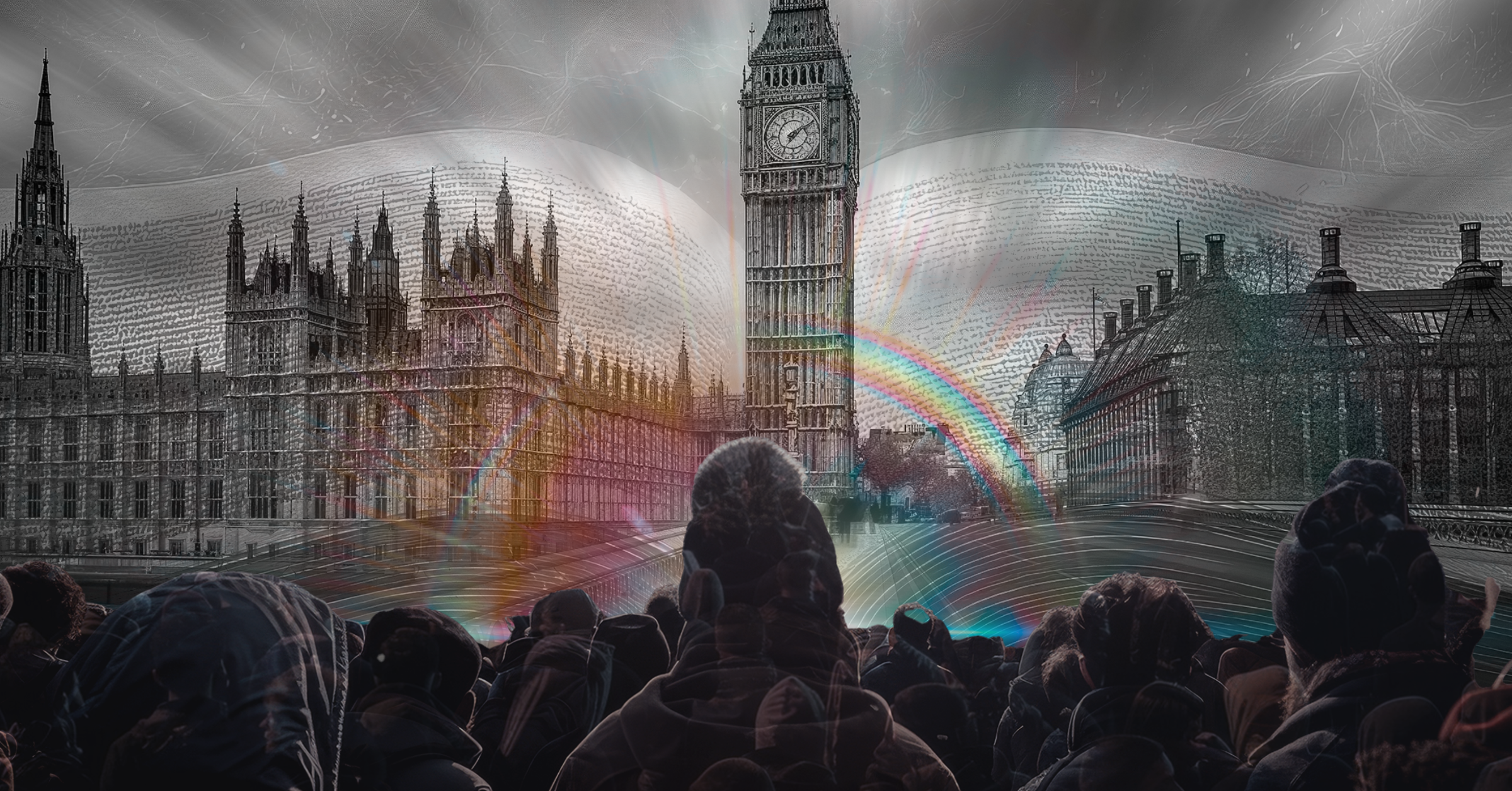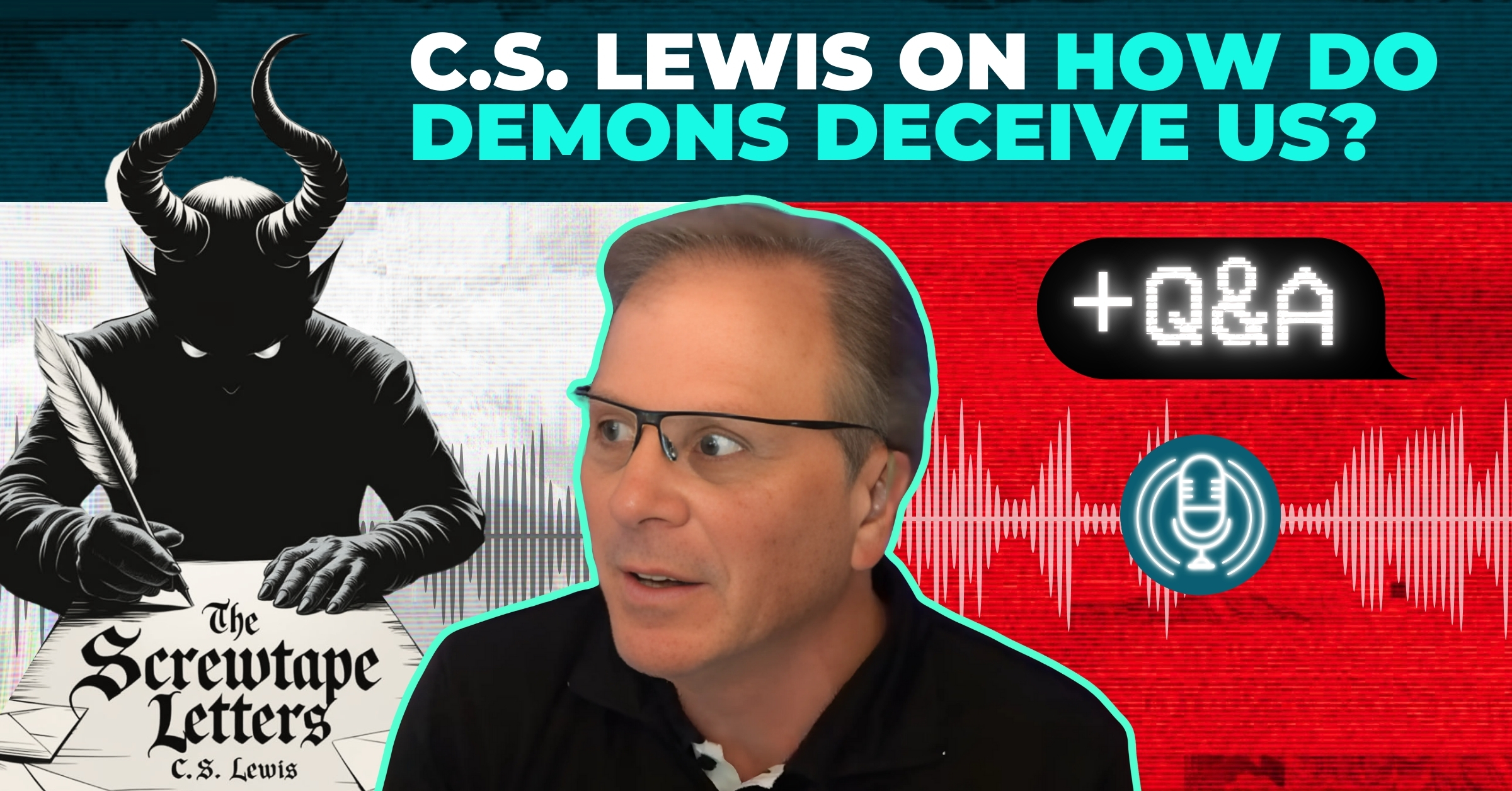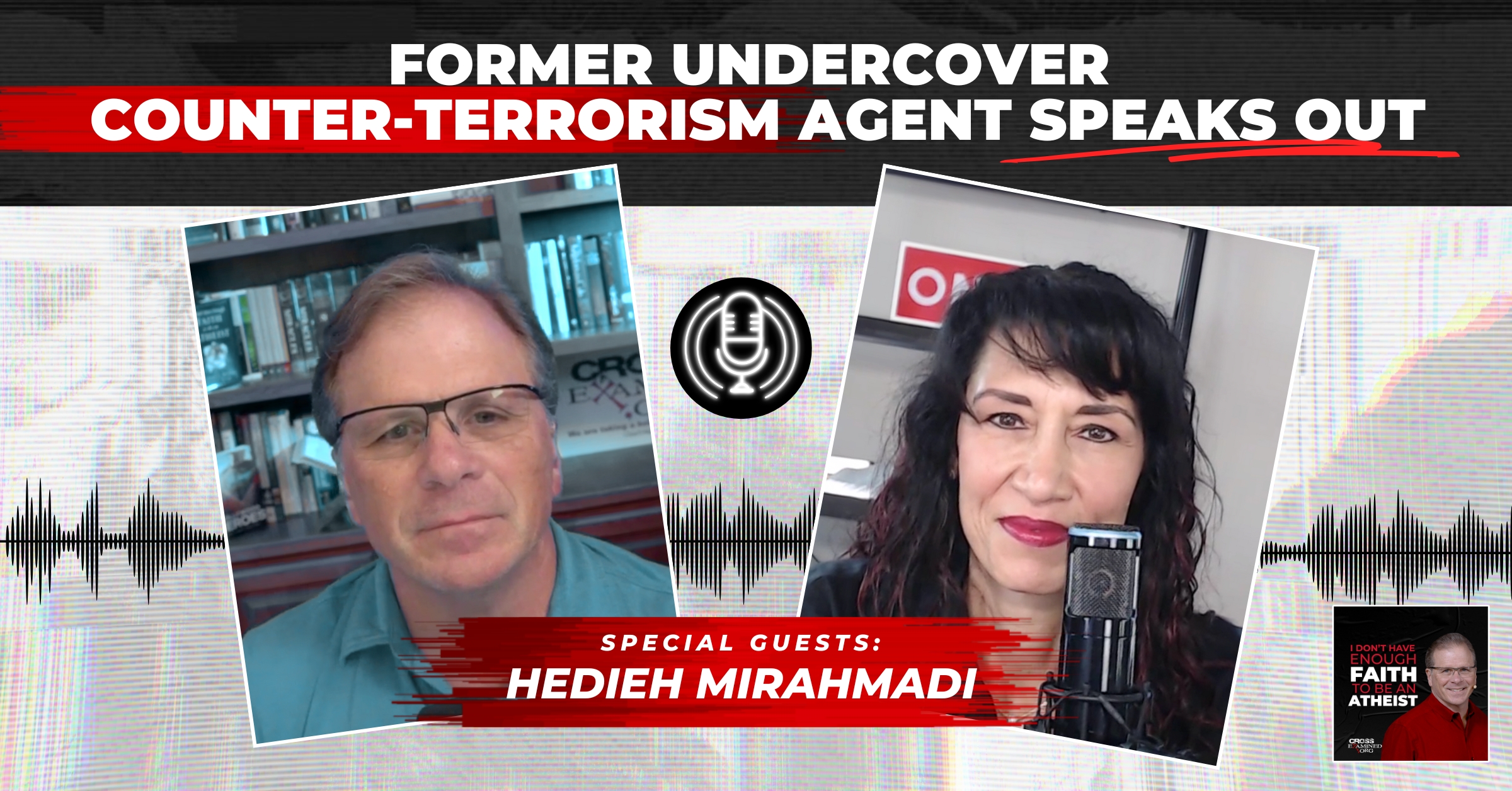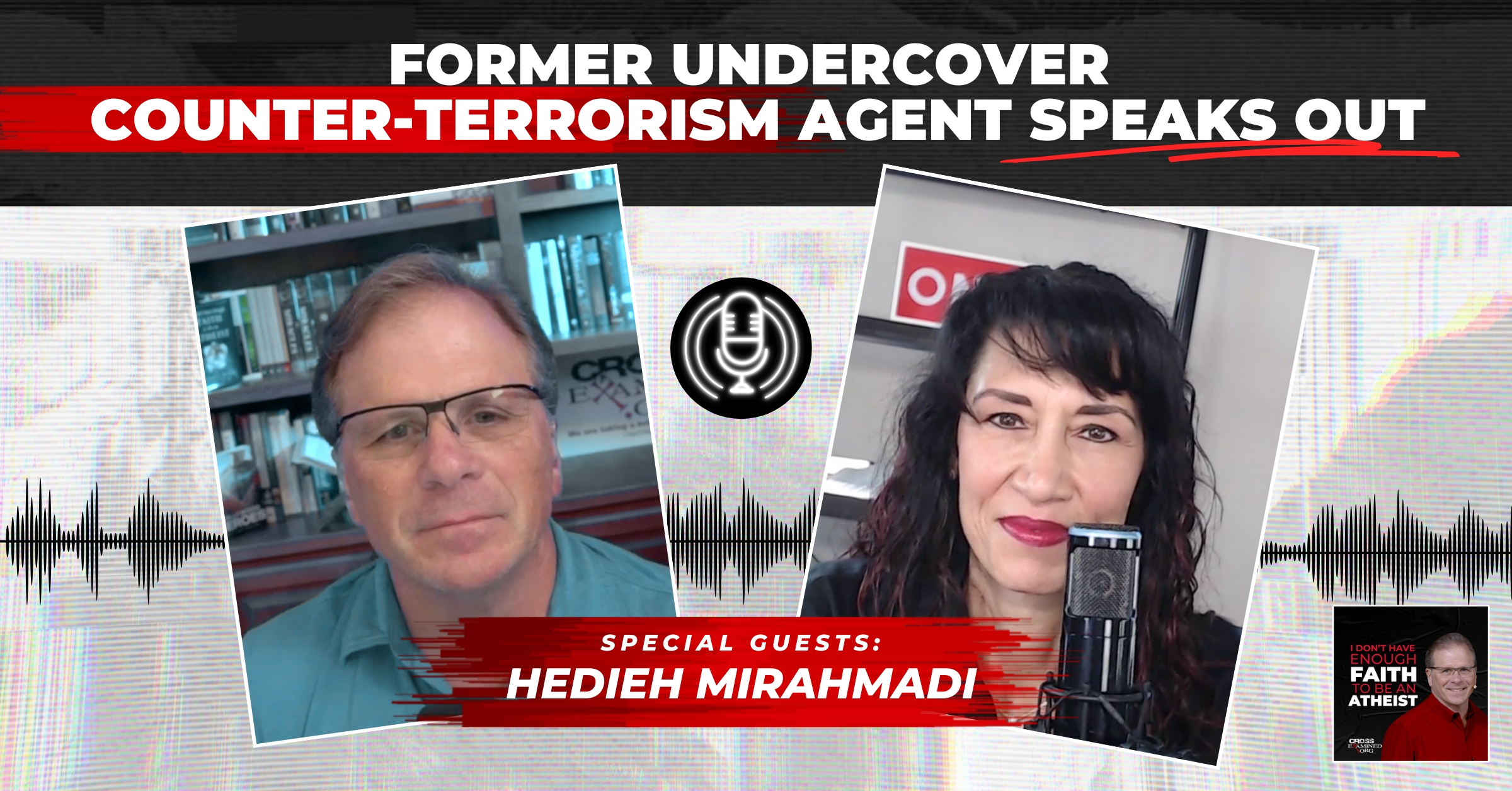Note: The original version of this article was published on Dr. Orr’s Substack.
The present version has been substantially revised and adapted by the author.
When Tucker Carlson aired the episode Here’s What It’s Really Like to Live as a Christian in the Holy Land (2025), the optics were powerful. His guest, Mother Agapia Stephanopoulos, appeared cloaked in a black Orthodox veil, her presence suggesting sanctity and authenticity. The fact that she was also the sister of George Stephanopoulos, longtime ABC political commentator, made the segment doubly compelling. The habit and the surname prepared audiences to assume her words carried both religious authority and cultural weight.
On the surface, she seemed to speak truth about Christian suffering in the land of Christ’s birth. In reality, what she offered was not gospel witness but a politicized narrative—an apologetic for propaganda. This is not about attacking a nun or a television host; it is about recognizing how propaganda undermines Christian credibility.
Christian apologetics must resist the lure of propaganda, for when believers trade truth for political narratives or survival strategies, they undermine the very credibility of the gospel whose power rests on historical reality and Christ’s Lordship. Carlson’s broadcast gives us a case study in how easily symbols and stories can distort Christian witness, and why apologists must anchor every defense of the faith in uncompromising truth.
Truth as the Foundation of Witness
The problem is not only what Mother Agapia said, but how Western audiences received it. Many viewers, unfamiliar with the history of Arab Christianity or the survival strategies of dhimmi life, mistook her testimony for unbiased truth. Yet her narrative echoed centuries of Christian communities navigating life under Islamic subjugation.
Under dhimmi status—a framework that allowed Jews and Christians to live under Muslim rule but only as second-class subjects—Christians developed “survival apologetics.” These rhetorical strategies defended not the gospel but communal existence. When this survival instinct becomes the measure of witness, truth is displaced, and credibility is lost.
Symbol vs. Substance in Apologetics
In the Western imagination, the nun’s habit symbolizes purity, moral authority, and spiritual integrity. Carlson framed Mother Agapia not as a political actor but as a “holy witness,” inviting viewers to hear her with reverence. As Roland Barthes observed, such symbols often function as “mythological signs”—they communicate meaning before arguments are tested.
But apologetics demands discernment beyond symbols. Peter calls believers to “set apart Christ as Lord” before making any defense (1 Pet. 3:15). No veil, robe, or role guarantees truth. The apologetic task is to measure every witness against Scripture, not appearances.
Why Credibility Matters in Apologetics
Mother Agapia claimed Christians are leaving Bethlehem because of Israeli occupation. While the demographic collapse is undeniable, her explanation was misleading. Historians have shown Bethlehem’s decline stems primarily from Islamist harassment, discriminatory laws, and economic pressures. By contrast, Israel’s Christian population has grown under protections of law and freedom of worship.
The apologetic point is critical: if Christians are careless with political truth, unbelievers will not trust them with theological truth. The resurrection rests on historical reliability. If we distort the facts in politics, why should anyone trust us about history’s most important fact—the empty tomb?
The Dhimmi Reflex and the Gospel’s Call
As Bernard Lewis observed, Christians under Islamic rule often shifted blame onto Jews as a way to preserve their safety. This “dhimmi reflex” continues today when Arab Christians echo nationalist propaganda instead of confronting Islamist hostility.
But Jesus warned against making survival the highest good: “Whoever would save his life will lose it” (Matt. 16:25). True apologetics refuses to sacrifice gospel truth for cultural or political survival. The early martyrs knew this well—burning incense to Caesar may have seemed like a minor concession, but it betrayed Christ’s Lordship. Apologetics today must embody the same fidelity.
It is worth noting that such compromises often arose under severe pressure. Christians living as minorities have faced hard choices. Yet the lesson for us today is not to condemn but to learn: fidelity to truth, even when costly, has always been the mark of authentic witness.
The Cost of False Witness
Mother Agapia’s credibility was already in question after her discredited claims during the 2002 Bethlehem siege. Yet Carlson presented her as trustworthy, as though a habit and a surname sanctified her words.
But apologetics cannot sanctify distortion. Its task is to defend the hope we have in Christ (1 Pet. 3:15), a hope grounded in truth. The gospel rises or falls on historical reality. Once Christians become comfortable bearing false witness for political ends, we erode the foundation of our apologetic witness.
Conclusion: Apologetics Anchored in Christ Alone
Mother Agapia’s appearance was praised as bold truth-telling, but in reality it was propaganda cloaked in sanctity. Her surname gave her visibility, her habit gave her credibility, and Carlson’s platform gave her reach. Yet none of these could sanctify distortion.
We are not called to defend propaganda—we are called to defend Christ. When Christians compromise truth for cultural approval, survival strategies, or political alliances, they may gain short-term credibility with the world but they lose credibility for the gospel. As Jesus warned, “What will it profit a man if he gains the whole world and forfeits his soul?” (Matt. 16:26).
The apologetic task is not to prop up narratives but to bear faithful witness to Christ, crucified and risen. The world will only trust our defense of the resurrection if it sees us defending truth in every sphere of life. In an age when media spectacles masquerade as reality, the most powerful apologetic is fidelity: setting apart Christ as Lord, and proclaiming Him with integrity, courage, and unwavering commitment to truth.
Recommended Resources:
Answering Islam by Dr. Frank Turek (DVD Set, Mp4 and Mp3)
Legislating Morality: Is it Wise? Is it Legal? Is it Possible? by Frank Turek (Book, DVD, Mp3, Mp4, PowerPoint download, PowerPoint CD)
Reflecting Jesus into a Dark World by Dr. Frank Turek – DVD Complete Series, Video mp4 DOWNLOAD Complete Series, and mp3 audio DOWNLOAD Complete Series
Does Jesus Trump Your Politics by Dr. Frank Turek (mp4 download and DVD)
Tim Orr serves full-time with the Crescent Project as the Assistant Director of the Internship Program and Area Coordinator, where he is also deeply involved in outreach across the UK. A scholar of Islam, Evangelical minister, conference speaker, and interfaith consultant, Tim brings over 30 years of experience in cross-cultural ministry. He holds six academic degrees, including a Doctor of Ministry from Liberty University and a Master’s in Islamic Studies from the Islamic College in London. In September, he will begin a PhD in Religious Studies at Hartford International University.
Tim has served as a research associate with the Congregations and Polarization Project at the Center for the Study of Religion and American Culture at Indiana University Indianapolis, and for two years, he was also a research assistant on the COVID-19 study led by Hartford International University. His research interests include Islamic antisemitism, American Evangelicalism, Shia Islam, and gospel-centered ministry to Muslims.
He has spoken at leading universities and mosques throughout the UK, including Oxford University, Imperial College London, and the University of Tehran. His work has been published in peer-reviewed Islamic academic journals, and he is the author of four books. His fifth book, The Apostle Paul: A Model for Engaging Islam, is forthcoming.

